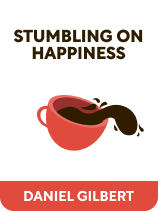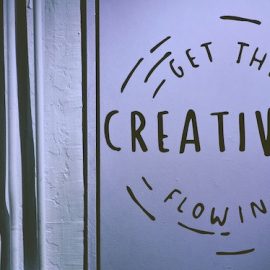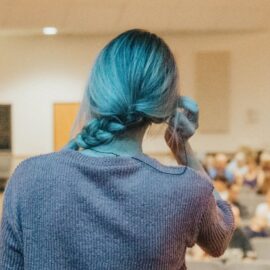

This article is an excerpt from the Shortform book guide to "Stumbling on Happiness" by Daniel Gilbert. Shortform has the world's best summaries and analyses of books you should be reading.
Like this article? Sign up for a free trial here .
Is taking advice from others a good idea? Do you shrug off advice given to you by friends and family?
Studies have shown that making decisions based on your own memories often leads to poor decision-making and unhappiness. However, social psychologist Daniel Gilbert says that taking advice from others can help you overcome your bias and faulty memories. Unfortunately, many ignore the advice of others for two main reasons.
Here’s why people tend to ignore advice from others.
Using the Insights of Others
If we can’t use our own experiences to make better choices, can we use the experiences of those who’ve made similar choices in the past? Unfortunately, writes Gilbert, we could, but we don’t. We avoid taking advice from others for two reasons: We believe the incorrect information we receive from others, and we ignore the correct information we receive from others.
(Shortform note: There are likely additional reasons beyond the two Gilbert outlines for why we don’t act on the insights of others. In Thinking, Fast and Slow, Daniel Kahneman writes that our pride can prevent us from accepting hard evidence that we were wrong about something in the past. Our pride can conceivably also cause us to ignore evidence from others that we may be wrong about the future: If we think we’ll ace a test, we may ignore the warning of someone who already took the test and found it difficult because believing them would mean accepting our initial assessment was wrong.)
Let’s look at each reason in more detail:
Reason #1: You Believe Incorrect Information From Others About What Makes You Happy
Gilbert writes that we often believe inaccurate information about what makes us happy because of the nature of that particular information: Some incorrect information about happiness is able to perpetuate itself because it encourages people to take the actions that spread it. Let’s illustrate this using the incorrect information that having kids makes you happy:
Your parents pass this information on to you at a young age, and you later act on it by having kids. You then tell your kids that having their own kids will make them happy, since you believe it’s true—it’s what everyone always told you, after all. Eventually, your kids have kids, too, who they tell to have kids, and the cycle continues. In this way, the information “having kids makes you happy” self-perpetuates, because it encourages people to keep producing the next generation who’ll learn and spread the information.
Yet, argues Gilbert, this information is incorrect: People with kids aren’t happy. They report low levels of happiness from childbirth until their kids go to college. The reason we perpetuate this lie is because of Correction Error #3: We remember feeling the way we believe we should have felt while parenting—happy and rewarded—not the way we actually felt: unhappy and tired.
This type of self-perpetuating information is essential to the continuation of humanity as a whole, not to the happiness of the individual, contends Gilbert. For us to survive as a species, we need to believe this information about what will make us happy, even though it’s untrue. We see this clearly in the example of “having kids makes you happy”—if we didn’t believe having kids makes us happy, none of us would have kids, and our species would die out.
You therefore can’t make better choices about the future using the insights of others because virtually all humans buy into and spread the same poor, self-perpetuating information about happiness, concludes Gilbert. That poor information may help our species to succeed, but it also forms the basis of decisions that leave you personally unhappy.
(Shortform note: Gilbert claims that there are certain ideas about what will make us happy that all humans “fall for” simply because we need to fall for them to keep humanity afloat. This could make us feel like unthinking cogs in a survival machine. Yet while this notion can be disheartening, some have proposed that while our genes undeniably want human life to continue, individual humans can still construct meaning beyond procreation for their own lives. We can make the world a better place through altruistic action, for instance, and in that way, we can defy the notion that we’re just tools used for some higher purpose.)

———End of Preview———
Like what you just read? Read the rest of the world's best book summary and analysis of Daniel Gilbert's "Stumbling on Happiness" at Shortform .
Here's what you'll find in our full Stumbling on Happiness summary :
- A look at how your brain fabricates your reality leading you to make bad decisions
- The six specific types of bad choices people make
- How to improve your decision-making in the future






